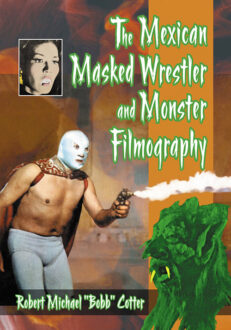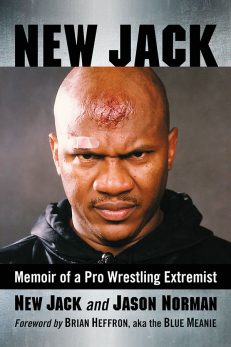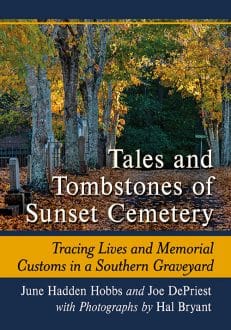Tales and Tombstones of Sunset Cemetery
Tracing Lives and Memorial Customs in a Southern Graveyard
$39.95
In stock
About the Book
This book relates the stories and describes the memorials of the people buried in Shelby, North Carolina’s historic Sunset Cemetery, a microcosm of the Southeastern United States. The authors, an academic and a journalist, detail the lives and memories of people who are buried here, from Civil War soldiers to those who created the Jim Crow South and promoted the narrative of the Lost Cause. Featured are authors W.J. Cash and Thomas Dixon, whose racist novel was the basis for The Birth of a Nation.
Drawn from historical research and local memory, it includes the tales of musicians Don Gibson and Bobby “Pepper Head” London, as well as a paratrooper who died in the Battle of the Bulge and other ordinary folks who rest in the cemetery. A bigger responsibility is to give a voice to the silenced, enslaved people of color buried in unmarked graves. Cemeteries are sacred places where artistry and memory meet–to understand, we need both the tales and the tombstones.
About the Author(s)
Bibliographic Details
June Hadden Hobbs and Joe DePriest; with Photographs by Hal Bryant
Format: softcover (7 x 10)
Pages: 214
Bibliographic Info: 91 photos, bibliography, index
Copyright Date: 2022
pISBN: 978-1-4766-8638-7
eISBN: 978-1-4766-4428-8
Imprint: McFarland
Table of Contents
Acknowledgments vi
Preface by June Hadden Hobbs 1
Introduction to a Southern Cemetery 5
Ballad of a Village Graveyard 5 • The Poetry of Graveyards 6
I. A Glimpse of Life a Century and More Ago 9
John Randolph Logan (1811–1884) 9 • Tombstones and Cemeteries 101 13 • Jesse Jenkins (1832–1889), Hattie Jenkins Garloch (1835–1927), Charles Coleman Blanton (1858–1944), Ora Brewster Blanton (1858–1890) 23 • Charles Fromm (1828–1891), Rosa Fromm (1830–1896), Belle Fromm (1861–1927) 28 • Dr. Jonathan Chauncey Gidney (1835–1889) 31 • Woodmen of the World and Trees in the Cemetery 33 • Dr. William Perry Andrews (1823–1903), Susan Ann Love Andrews (1832–1874) 40 • M.L. Heafner (1873–1918) 41 • Dr. Thomas Williams (1806–1879), Permelia Williams (1821–1897), Mary C. Elliott (Unknown–1858) 42 • Hands 44 • John Fay (c. 1891–1931) 48
II. Women You’d Want to Have Coffee With 49
Kidder Cole Nichols “Mama Nick” (1878–1947) 49 • Fraternal Symbols on Gravestones 50 • Attie Bostic League (1875–1965) 52 • Christianity in the Cemetery 55 • Emma Virginia Frick (1871–1928), Ora Brewster Eskridge (1885–1928) 59 • Mimi Elliott Hirsch and the Making of a Marker 63 • Betty Singleton Holdridge, “The Fat Lady” (1910–1954) 67 • Caring for the Dead 69
III. Guys Your Mother Wouldn’t Let You Sit With in Church 73
Rafe King (1891–1949) 73 • Edwin Chambers Dodson, Jr. (1949–2003) 75 • Tombstones and Virtual Memory 77 • Robert E. Harrill (1893–1972) 79
IV. Gone Too Soon 81
Laurens McGowan (1853–1873) 81 • “Safe in the Arms of Jesus” and Other Hymns on Tombstones 84 • Wade Stough Lattimore (1877–1896) 89 • Robert Olney Kerr (1895–1905) 92 • Little Georgie Rebecca Clower (1873–1878) 93 • Burying the Young 93 • Emmett Nelson (1882–1902) 96 • Annie Wray (1883–1902) 97 • Robert Cone Elliott (1890–1921) 97
V. Rebels and Revisionists 99
Harvey Dekalb Cabaniss (1826–1904), Aurelia Ann Otterson Cabaniss (1822–1899) 99 • Micajah Durham (1804–1864), Plato Durham (1840–1875), Robert Lee Durham (1870–1949) 101 • The Lost Cause 105 • Thomas Dixon, Jr. (1864–1946) 108 • The Memory of Heroes 111 • Wilbur Joseph “W. J.” Cash (1900–1941) 115 • D.J. Hamrick, Local Stonecarver 119
VI. Law and Lynchings in the Jim Crow South 123
Police Chiefs: Robert Shelton Jones (1860–1901), Edgar Hamrick (1868–1904) 123 • The Jim Crow Monument 128
VII. Names You Might See in the Newspaper 134
Oliver Max Gardner, Sr. (1882–1947), Clyde Roark Hoey (1877–1954), Lee Beam Weathers (1886–1958), Frank Gladden (1882–1956) 134 • Gender Formation in the Cemetery 141 • John P. McKnight (1908–1987) 144
VIII. Cultural Heroes 146
S/Sgt. Bonnie G. Wright (1918–1945) 146 • Hugh F. Hamrick (1914–1949) 150 • Expatriation and Visualization 151 • Ann Eliza Stough (1826–1888) 155 • Henry Wadsworth Longfellow, Cultural Hero 156 • Don Gibson (1928–2003) 160 • Art in the Cemetery 164 • Bobby “Pepperhead” London (1945–2010) 168 • Sports: The New American Religion 171
IX. Ministers to Body, Mind, and Soul 177
Henry Beckham “Beck” Quinn (1854–1924) 177 • George Smyrnois (1888–1929) 179 • The Rev. Hilary Thomas Hudson (1823–1892), Dr. Joseph “Joe” MacDonald Reeves (1929–2015) 180 • Theodore William Ebeltoft (1849–1932) 185 • Cemeteries as Museums 187
X. Garden of the Enslaved 191
The “Colored Cemetery” 191 • Damnatio Memoriae 193
Bibliography 199
Index 203





